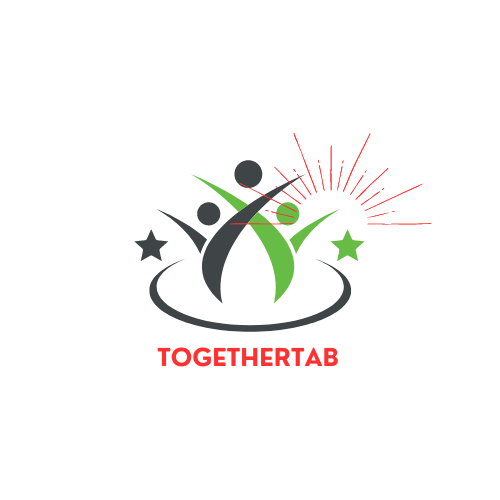The Profound Beauty of 기도송 날 부르신 이 4부 베이스 윤대영 : A Deep Dive into Korean Choral Excellence

“기도송 날 부르신 이 4부 베이스 윤대영” (translated as “The One Who Called Me to Prayer”) holds a special place in the heart of Korean choral music, celebrated for its intricate harmonies and emotional resonance. This particular arrangement, crafted by the distinguished bass vocalist Yoon Dae-young (윤대영), is revered for its masterful blend of musicality and vocal depth.
In this article, we will explore the nuances of this choral masterpiece, offering insights into its musical structure, performance techniques, and its significance within Korean choral traditions.
Understanding the Origins and Significance of “기도송 날 부르신 이”
The Spiritual Roots of the Song
“기도송 날 부르신 이” is a piece deeply embedded in Korean spiritual and religious traditions. It is often performed in religious settings, reflecting a deep sense of devotion and prayer. The song’s lyrics, which speak to being called to prayer, resonate with many who seek comfort and guidance in their faith.
The Role of Yoon Dae-young in Elevating the Piece
Yoon Dae-young, a renowned bass vocalist, has contributed significantly to the popularity and interpretation of this piece. His 4-part bass arrangement of “기도송 날 부르신 이” is particularly noted for its rich vocal layering and the emotional depth it brings to the performance. Yoon’s interpretation goes beyond mere replication of the notes, offering a profound connection to the spiritual essence of the song.
The Musical Structure of Yoon Dae-young’s Arrangement
Analyzing the 4-Part Harmony
The 4-part bass arrangement by Yoon Dae-young is a masterclass in choral harmony. It meticulously balances the bass parts, ensuring that each voice contributes to the overall richness of the sound. The arrangement is designed to enhance the emotional impact of the lyrics, with each part adding a layer of depth and resonance.
Vocal Techniques in the Bass Arrangement
Yoon Dae-young’s arrangement requires a high level of vocal control and technique, particularly for the bass singers. The deep, resonant tones needed for this piece demand not only vocal strength but also precise breath control and the ability to sustain long, melodic lines without losing pitch or tone quality.
The Emotional Arc of the Music
One of the standout features of this arrangement is the emotional journey it takes the listener on. The piece begins with a gentle, introspective melody that gradually builds in intensity, reflecting the rising spiritual fervor of the lyrics. The bass voices play a crucial role in this, providing a solid foundation that grounds the more delicate upper voices.
Performance Techniques and Challenges
The Importance of Vocal Cohesion
In a 4-part bass arrangement like this, vocal cohesion is essential. Each singer must be attuned to the others, ensuring that their voices blend seamlessly. This is particularly challenging in a piece like “기도송 날 부르신 이,” where the harmony is complex and the dynamics are subtle.
Balancing Power and Subtlety
One of the key challenges in performing this piece is balancing the power of the bass voices with the subtlety required by the music. Singers must be able to project their voices without overpowering the other parts, maintaining a delicate balance between strength and restraint.
Conveying the Spiritual Message
Beyond the technical challenges, performers of this piece must also convey its spiritual message. This requires a deep connection to the lyrics and an ability to express the underlying emotions through their voices. Yoon Dae-young’s arrangement, with its focus on the bass voices, brings this aspect to the forefront, challenging singers to not only perform but to feel the music.
The Broader Context of Korean Choral Music
The Evolution of Korean Choral Music
Korean choral music has a rich history, influenced by both traditional Korean music and Western choral traditions. Over time, it has evolved into a unique genre that blends the melodic and harmonic structures of Western choral music with the emotional expressiveness of Korean musical traditions.
The Role of Spiritual Music in Korean Culture
Spiritual music, including pieces like “기도송 날 부르신 이,” plays a significant role in Korean culture. These songs are often performed in religious settings, serving as a means of expressing faith and devotion. They also hold a broader cultural significance, reflecting the values and beliefs of the Korean people.
Yoon Dae-young’s Contribution to Korean Choral Music
Yoon Dae-young is a prominent figure in the Korean choral music scene, known for his innovative arrangements and deep understanding of the genre. His work on “기도송 날 부르신 이” is just one example of how he has contributed to the evolution of Korean choral music, blending traditional elements with modern techniques to create something truly unique.
How “기도송 날 부르신 이 4부 베이스 윤대영” Connects with Audiences
The Emotional Resonance of the Song
One of the reasons why “기도송 날 부르신 이” resonates so deeply with audiences is its emotional power. The lyrics speak to universal themes of faith, devotion, and the search for spiritual guidance, while the music amplifies these themes through its rich harmonies and dynamic structure.
The Impact of Yoon Dae-young’s Interpretation
Yoon Dae-young’s interpretation of the song has brought it to new audiences, both within Korea and internationally. His arrangement highlights the emotional depth of the piece, making it accessible to listeners who might not be familiar with Korean choral music.
Audience Reception and Interpretation
Audiences often respond to this piece with a deep sense of connection, both to the music and to the spiritual message it conveys. Whether performed in a church, a concert hall, or at a choral competition, “기도송 날 부르신 이” has the power to move listeners, leaving a lasting impression.
The Global Appeal of Korean Choral Music
Growing International Interest
In recent years, there has been a growing interest in Korean choral music on the global stage. This is partly due to the rise of Korean pop culture, but it also reflects a broader appreciation for the unique qualities of Korean music, including its emotional depth and technical complexity.
The Role of Yoon Dae-young in Promoting Korean Music Internationally
Yoon Dae-young has played a key role in promoting Korean choral music internationally. His arrangements, including “기도송 날 부르신 이,” have been performed by choirs around the world, helping to introduce this beautiful genre to new audiences.
Cultural Exchange Through Music
The global appeal of Korean choral music also speaks to the power of music as a means of cultural exchange. Through pieces like “기도송 날 부르신 이,” audiences from different cultural backgrounds can connect with the universal themes of faith, devotion, and the human experience.
FAQs about “기도송 날 부르신 이 4부 베이스 윤대영”
1. What is the meaning of “기도송 날 부르신 이”?
“기도송 날 부르신 이” translates to “The One Who Called Me to Prayer.” It is a spiritual song that reflects themes of faith and devotion, commonly performed in religious settings.
2. Who is Yoon Dae-young?
Yoon Dae-young is a renowned bass vocalist known for his contributions to Korean choral music. His arrangement of “기도송 날 부르신 이” is particularly celebrated for its intricate harmonies and emotional depth.
3. What makes Yoon Dae-young’s arrangement of “기도송 날 부르신 이” unique?
Yoon Dae-young’s arrangement is unique for its focus on the bass voices, creating a rich, resonant sound that enhances the emotional impact of the piece. His interpretation also brings a modern sensibility to this traditional song, making it accessible to a wider audience.
4. Why is “기도송 날 부르신 이” important in Korean choral music?
“기도송 날 부르신 이” is important in Korean choral music for its spiritual significance and its emotional power. It is a piece that resonates deeply with performers and audiences alike, reflecting the values and traditions of Korean culture.
5. How can I listen to a performance of “기도송 날 부르신 이 4부 베이스 윤대영”?
Performances of “기도송 날 부르신 이 4부 베이스 윤대영” can often be found on music streaming platforms, or through recordings of Korean choral concerts. It is also occasionally performed by choirs in religious settings.
6. What are the challenges of performing “기도송 날 부르신 이” in a choir?
The challenges of performing “기도송 날 부르신 이” include maintaining vocal cohesion among the bass voices, balancing power and subtlety in the performance, and conveying the emotional and spiritual message of the piece.
7. How does Yoon Dae-young’s arrangement of “기도송 날 부르신 이” differ from other versions?
Yoon Dae-young’s arrangement stands out for its emphasis on the bass parts and its complex harmonies. While other versions might focus on a different vocal range or simpler harmonies, Yoon’s arrangement is noted for its depth and technical difficulty.
8. What role does spiritual music play in Korean culture?
Spiritual music, including pieces like “기도송 날 부르신 이,” plays a significant role in Korean culture, often performed in religious settings and reflecting the deep spiritual traditions of the Korean people.
9. Can “기도송 날 부르신 이” be performed by non-Korean choirs?
Yes, “기도송 날 부르신 이” can be performed by non-Korean choirs. Its universal themes and beautiful harmonies make it accessible to choirs from different cultural backgrounds, although some familiarity with Korean pronunciation is necessary for an accurate performance.
10. How can I learn more about Korean choral music?
To learn more about Korean choral music, you can explore recordings and performances by Korean choirs, attend live choral concerts, or study the works of prominent Korean choral composers and arrangers like Yoon Dae-young.
Conclusion: The Lasting Impact of “기도송 날 부르신 이 4부 베이스 윤대영”
“기도송 날 부르신 이 4부 베이스 윤대영” is more than just a choral piece; it is a profound expression of faith and devotion, brought to life through Yoon Dae-young’s masterful arrangement. This piece has not only enriched the Korean choral tradition but has also resonated with audiences around the world, reflecting the universal power of music to connect us to something greater than ourselves. Whether you are a performer, a listener, or simply someone seeking spiritual solace, “기도송 날 부르신 이 4부 베이스 윤대영” offers a moving and unforgettable experience.









